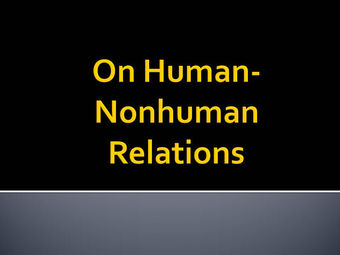This evening I went with a second
Vegan Information Project volunteer to an event in Dublin entitled, “Climate Conversations 2015 Launch Event: Communicating the Challenge” which featured, among others, Eamon Ryan of the Green Party in Ireland, Claire O'Connor, former international director for Vice President Al Gore's Alliance for Climate Protection, Oisín Coghlan of Friends of the Earth, and media expert Terry Prone. This was the first of five events about the challenge of climate change.
A couple of things cropped up during the night that I think are relevant to the animal advocacy movement. One topic in particular. Claire O’Connor said that one strategy she was involved in organising during her time in Gore’s team was suggesting to people that they begin by doing fairly easy things that will help the environment. The first thing suggested was to change light bulbs to environmentally-friendly ones.
The strategy is simple. When people get used to doing this relatively easy thing, they’ll move on to other things that they can do for the environment, maybe eventually something like changing the type of car they own.
This is a sensible incremental strategy they thought. Don’t want to scare people off by asking them to do something substantial right from the get go.
However, they found that many people did not necessarily “progress” to more meaningful activities that would help the environment, and so they set about to find out why. They were told by many people that it had been suggested to them that changing light bulbs would be great for the environment. They said, in effect, “I’ve changed the light bulbs, so I’m tackling climate change.”
O’Connor says that their initial strategy has subsequently been called into question due to its failure. People simply did not move incrementally from one environmentally-friendly measure to another. The Gore team are now trying to find out if being straightforward and honest about what they
really wanted people to do would have been a better strategy right from the start.
While this story was unfolding, I began to think about the campaigns in the animal advocacy movement to encourage “meat reducers” - and the endeavours to motivate people to participate in “Meatless Mondays.” Are these “easy-steps-first,” “baby-steps” campaigns going to ultimately fail just like the environmental ones described by O'Connor?
Might it be the case that telling people the truth is best from the beginning? Go on, utter that word “VEGAN.” There, wasn’t too hard, was it? Vegans – you want people to live vegan, right? So perhaps that’s what we vegans should ask of people. Nice and open and nice and honest.
Let the vegetarians campaign for vegetarianism, and let the who-knows-what try to influence the “meat reducers.”
You, vegan brothers and sisters, have grown-up vegan work to do.The other issue that came up was raised by Terry Prone in her very entertaining talk. She said we can think, essentially, of three types of people.
1. The Converted.
2. The Unconvertible.
3. The Undecided.
Don’t bother talking too much to the 1s, they are already on your side, she said, and it’s pretty much a complete waste of time talking to the 2s. Your audience are the 3s, the undecided, and probably the majority to boot.
It made me think of a point Brendan McNally made in a presentation he did at the animal rights conference in Luxembourg (see below). Brendan said that we in the animal movement have this unfortunate habit of socially constructing “the enemy” who we can hate and campaign against. In Prone’s schema, these are the 2s, those we’ll never convince.
Interestingly, she said that, in the fullness of time, the 2s will just have to be forced to buckle to our will with laws and legislation
after we’ve won over the 3s.
This is why, in the animal advocacy movement, it’s often said that we should engage with the political system with the aim of achieving “animal-friendly” laws, rules, and regulations. That
may be so – although the anarchists among us will object to that. In any event, what is certain right now is that
now is NOT the time for political campaigning. It’s way too early.
Our job is to bring about cultural change and that means talking to the 3s. And remember where we started, be honest with them now!




 It was my great pleasure to welcome to On Human-Nonhuman Relations Podcast sociologists Matthew Cole and Kate Stewart to discuss themes from their new book, Our Children and Other Animals: The Cultural Construction of Human-Animal Relations in Childhood.
It was my great pleasure to welcome to On Human-Nonhuman Relations Podcast sociologists Matthew Cole and Kate Stewart to discuss themes from their new book, Our Children and Other Animals: The Cultural Construction of Human-Animal Relations in Childhood.
